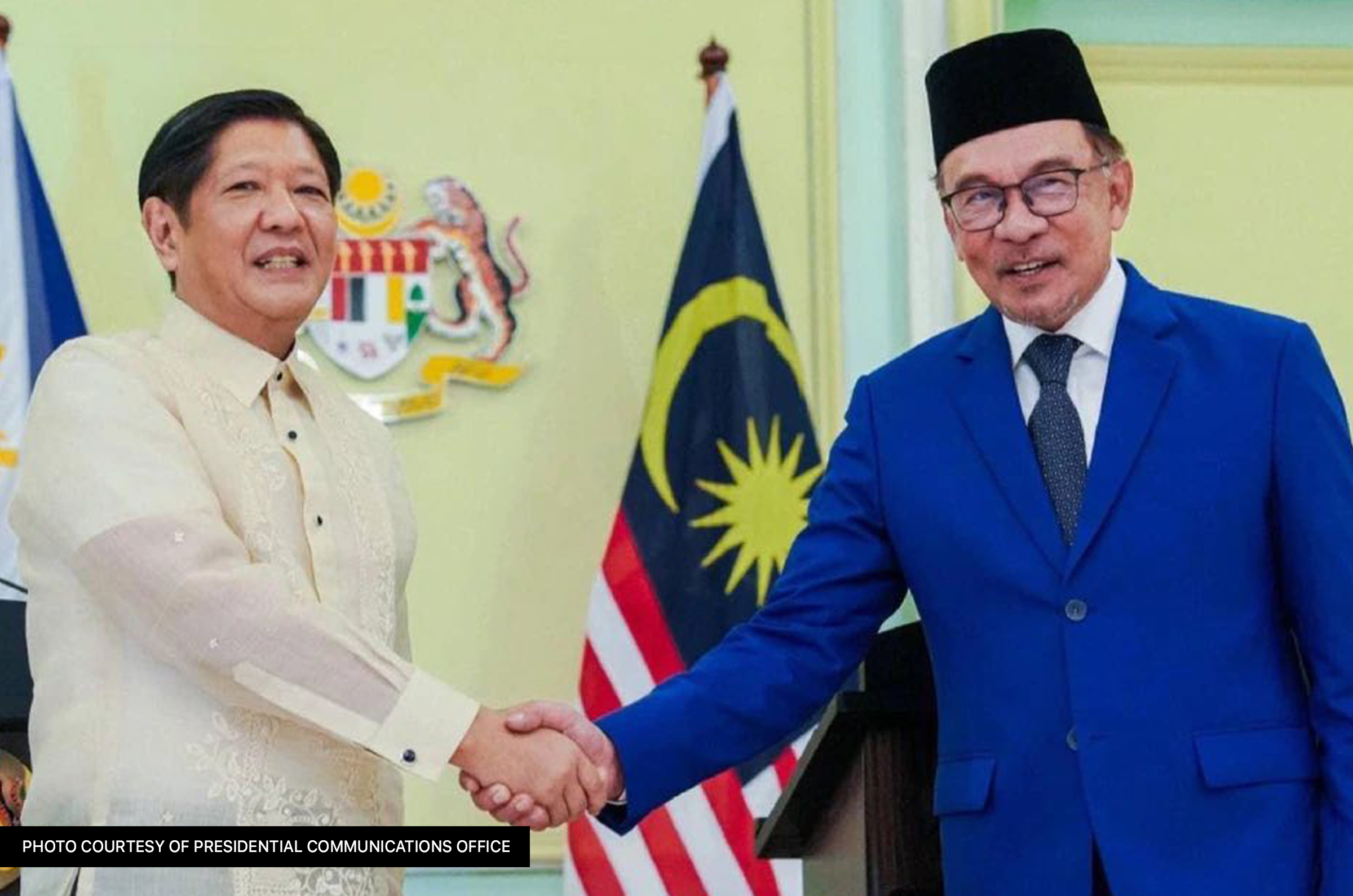Photo from Presidential Communications Office
COTABATO CITY—Philippines and Malaysia reached an agreement on Wednesday, July 26 to collaborate on the development of the Bangsamoro Autonomous Region in Muslim Mindanao (BARMM) and jointly promote the growth of the Halal Industry.
This was after the President Ferdinand Marcos Jr.’s recent state visit to Malaysia to discuss strategic partnership, which signifies their commitment to fostering progress and prosperity in these key areas through bilateral efforts.
President Marcos said this move is seen as a crucial step to provide the Philippine and Malaysian government agencies with a platform to engage in detailed discussions on cooperation.
Among the key areas to be addressed in these discussions are transnational crimes, the agricultural sector, and the vast potential of the Halal industry, which has the prospect of becoming a “trillion-dollar industry.”
Furthermore, both nations seek to explore collaboration in various sectors, including Islamic banking, education, tourism, culture, sports, and the dynamic digital economy.
“We continue to work on the corresponding Memorandum of Understandings (MOUs) in these fields and have them signed. We will have them signed in the near future,” PBBM said.
He added that Malaysia has offered its expertise to train Philippine personnel and officials to strengthen their capabilities in those important sectors.
President Marcos highlighted the significance of Malaysia’s position as one of the world’s leading Halal economies, emphasizing the potential benefits that cooperation between the two countries could bring in this domain.
Malaysia was the 10th largest trading partner of the Philippines last year, with trade totaling US$8.84 billion. In the same period, Malaysia ranked as the country’s 11th export destination and 9th import source valued at US$2.46 billion and US$6.38 billion, respectively.
President Marcos also recognized the importance of ASEAN Centrality, saying he and Malaysian Prime Minister Anwar Ibrahim reaffirmed their commitment to support the activities within the context of the Association of Southeast Asian Nations (ASEAN) and the Brunei-Indonesia-Malaysia-Philippines East ASEAN Growth Area (BIMP-EAGA).
Prime Minister Ibrahim said that their agreement to convene the joint commission also aims to boost the diplomatic ties between the two countries.
“Finally, I think the issues that we relate upon is the issue of the joint commission that’s going to meet towards the end of the year,” the Prime Minister said.
The Malaysian politician further added, “There is a huge potential that we must explore, the strength in the Filipino economy, in your capacity in the business sector… Both business communities [of the Philippines in Malaysia] should interact more and jointly take measures to enhance bilateral relations and economic trade—and at the same time, resuscitate our economies [in the] post-COVID era.”
Ibrahim said “effective measures” should be undertaken to ensure that Halal industry can penetrate more into the Middle Eastern market.
The Malaysian Government played a vital role in 17 years of peace negotiations (2001-2018) between the Philippine Government and the Moro Islamic Liberation Front (MILF). Serving as a Third-Party Facilitator and host country, Malaysia facilitated discussions, provided a conducive atmosphere and venue, acted as a “referee” when needed, bridged differences, administered talks, and recorded commitments and agreements made during the negotiations. (Kasan Usop, Jr./BIO)








